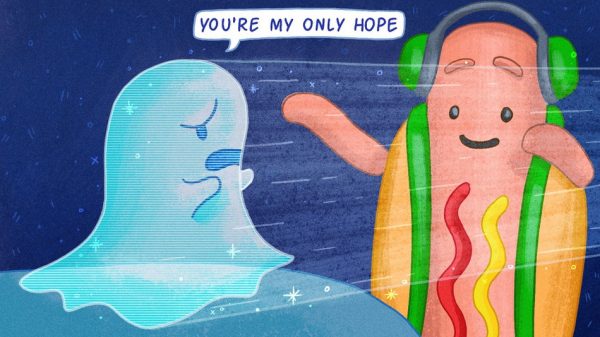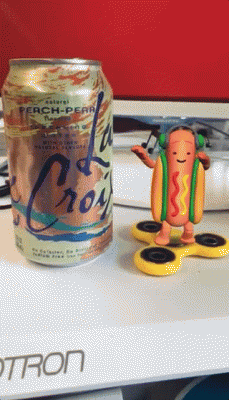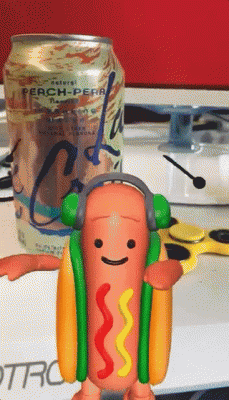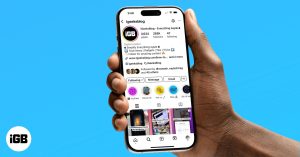The future of Snapchat is in the dancing hot dog’s hands

Is Snapchat dying? You’d think so, given the tenor of recent reports about everything from its dipping stock price to its supposed non-essentiality with teenagers.
But everyone giving up on Snapchat is missing something right under their noses: a breakdancing rod of pink slime. If there’s a star of the summer, it’s the dancing hot dog.
“Value” on social media is hard to quantify. Facebook has 2.01 billion monthly users, but its News Feed has long been a morass of untrustworthy news links, viral videos, and bad opinions from distant friends and relatives. How valuable is a service that users resent and fear? For now, it’s worth about $500 billion, but eventually the scale can tilt too far in favor of crap, and users can flee. Facebook does too much to do much of anything well. Meanwhile, Snapchat has a dancing hot dog. It’s silly, it’s brilliant, and it says basically everything about the app and its possible future.
As a “world lens,” the dancing hot dog lets you superimpose a digital effect onto what your phone’s camera is seeing. Point your camera anywhere, tap your screen, and scroll over to the smiling hot dog icon to display the dancing wiener on your screen. Snapchat’s able to understand 3D space pretty well, which means you can drag the hot dog around and it’ll respond to objects in the “real world.”
So, you can have it stand on top of a fidget spinner, or bring it much closer to your camera and pan across its noggin — as if it’s really there:
There’s no data that shows how valuable the hot dog or any of Snapchat’s lenses are. The company revealed this month that people had viewed the dancing sausage more than 1.5 billion times, which is… something. And its success does speak to Snapchat’s strategy as a platform that emphasizes fun, even artistic communication between people who actually know and like each other.
Granted, your hot dog-infused snaps won’t ever make it to the Louvre — they disappear once they’re viewed, after all — but the impulse to create snaps and send them to your friends comes from a place of creativity that’s at least 50 times more interesting than whatever motivated your drunken Aunt Millicent to post her “Antifa explainer” from “Ammunitions and PatriotZ” on Facebook.
If that value is hard to quantify, then it might be a problem with what we’re quantifying and why. For example:
- Snapchat is often compared unfavorably to Facebook on the basis that it has 166 million daily users versus 1.32 billion.
- Because Snapchat has fewer users than Facebook, and its user base is growing slowly, investors freak out and the stock value plummets.
Snapchat’s value is often defined by how many people use it, and to what extent that user base is growing. Meanwhile, a comScore report revealed that Snapchat isn’t viewed as an “essential” app for 18-to-34-year-olds, though several Facebook-owned apps are.
For users, the worst thing an app can be in 2017 is essential
To which we say: Great! For users, perhaps the worst thing an app can be in 2017 is essential. If we can’t live without Facebook products, that is bad news for us, and great news for a tech corporation that has often behaved irresponsibly in terms of how it treats its users.
Snapchat and its hot dog are non-essential, but they’re engaging! And most importantly, they’re fun. Which is possibly why younger demographics use Snapchat more than Facebook, according to one recent analysis. People under the age of 40 — Snap’s bread and butter — reportedly spend more than 40 minutes per day on the app.
People supposedly spend around 50 minutes per day across Facebook’s suite of products (Messenger, Instagram, etc.), which isn’t surprising, and it’s also arguably less meaningful than Snapchat’s 40 minutes. Snapchat only does so much: Facebook, Messenger, and Instagram, lumped together, do too much, obfuscating their value apart from the raw minutes-spent metric.
What are people doing in their 50 minutes on Facebook, Messenger, and Instagram? Hard to say. On Snapchat, you can reasonably conclude that users are interacting with other people, and maybe watching curated news stories through the platform’s “Discover” feature (which, full disclosure, Mashable is a partner on). And they are certainly sending that hot dog to one another.
In sum, we grant that Facebook is a behemoth social force, and a wildly profitable one. Snapchat, meanwhile, hemorrhages money — a symptom of a sick system that willfully ignores the value of an undulating stick of lunch meat, we’d argue. Look at it this way: Snapchat has established itself as a preferred platform for younger people who will eventually age into a demographic that runs businesses and spends money. We’re doing a poor job anticipating what that will mean, though we doubt it’ll be great things for Facebook.
Besides, while Instagram’s “Stories” product — a blatant Snapchat ripoff — holds us in its thrall, don’t forget that it’s vulnerable to the hot dog. Nothing’s stopping you from snapping that groovy dude, saving it, and uploading it to Insta, spreading that meat like a virus:
So let’s remember that Snapchat is more than a social network: It’s a creative tool that people like to use, which creates a product (your snaps) that can be posted elsewhere if you so choose. Instagram and Facebook have filters and lenses, yes, but none have rivaled the cultural cachet of the dancing hot dog — or the bumble bee, puppy face, or any other Snapchat creations.
It’s all hard to quantify, but no doubt it’s worth something.












